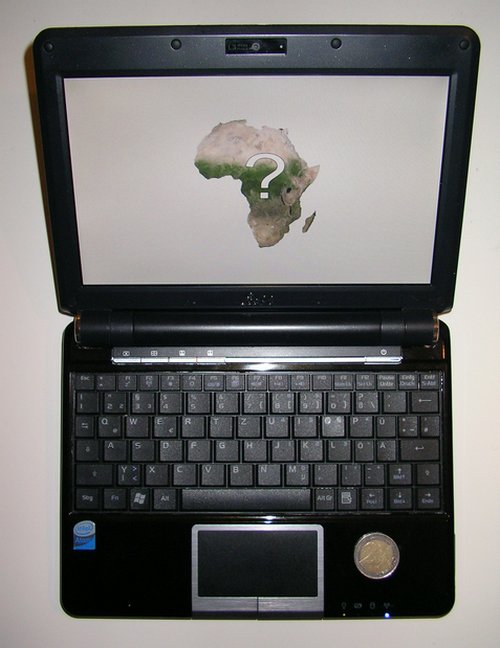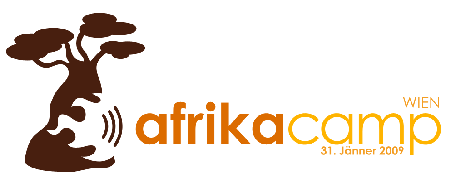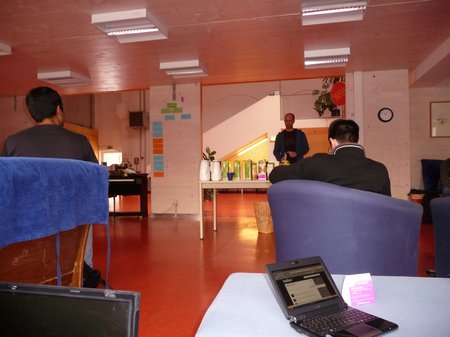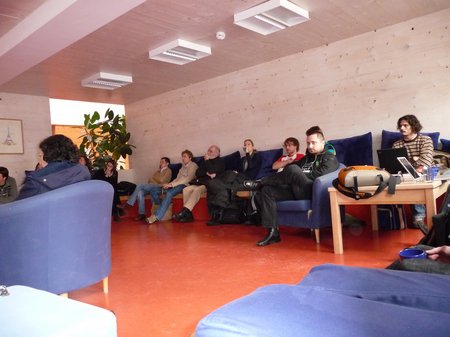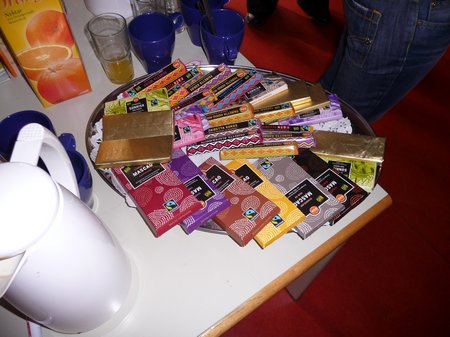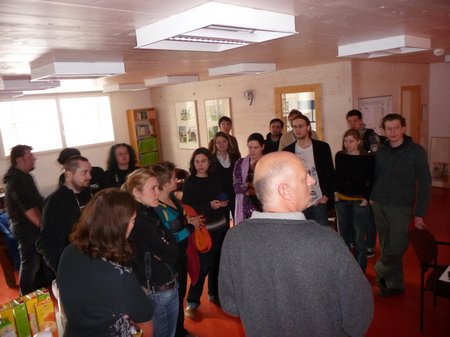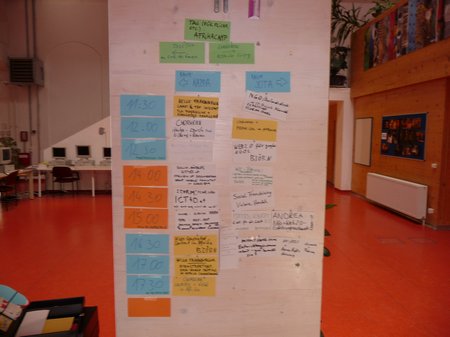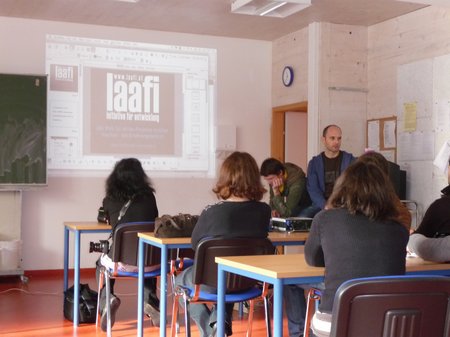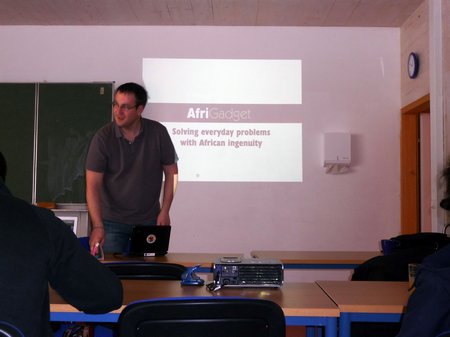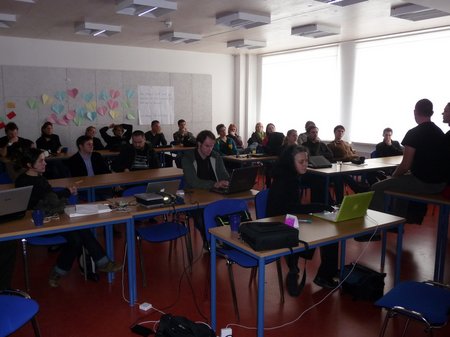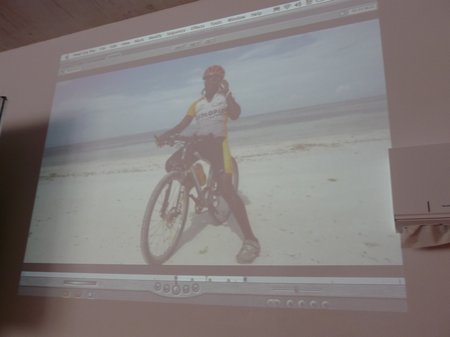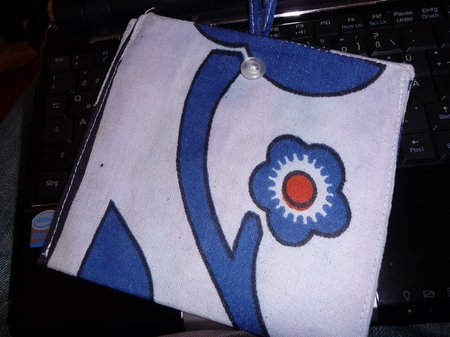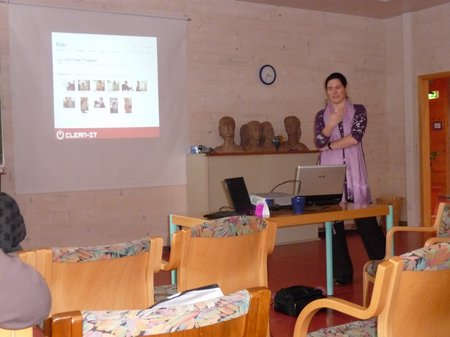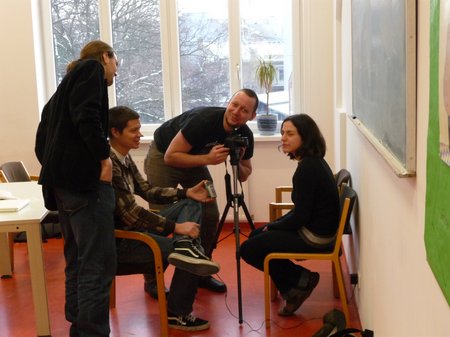Ich bin grad zurück vom BarCamp Darmstadt 2010, bei dem sich nicht nur IT Fritzen, und auch nicht nur Interessierte aus dem Rhein-Main Gebiet haben blicken lassen.
Wenn jemand eine so lange Anfahrt aus dem Saarland in Kauf nimmt um sich mit Leuten auszutauschen, die er/sie vielleicht sonst nur “von Twitter” her kennt, durch die eine oder andere Session inspiriert wird oder einfach nur schaut was beim BarCamp los ist, dann spricht das wohl schon für die Qualität der sehr guten Organisation und vielleicht auch der Teilnehmer.
In fast jedem Fall empfand ich diese 2 Tage (von 08:00 bis 18:00 Uhr) in einem Gebäude der Deutschen Telekom in Darmstadt als gelungen – entsprachen sie doch genau meinen Vorstellungen vom BarCamp, wo es übrigens jedem Teilnehmer überlassen wird, durch einen eigenen Beitrag eine sog. Session zu gestalten und die Diskussion/Austausch zu einem Thema zu fördern. Außerdem verwahrlost man als selbstständiger “was-mit-IT/Web/Medien”-Worker leicht, so dass dieser zwanglose Austausch bei den Stammtischen, Webmontagen, Ignite-Abenden, TEDx[Stadtname] und jetzt diesem BarCamp eine wirklich angenehme Alternative darstellt. Ein BarCamp empfinde ich dabei im besten Fall immer als eine Art Weiterbildung – auch wenn man meint, vieles zu kennen, gibt es doch immer wieder neue Kontakte.
Ich habe auch so eine (sehr gut besuchte – thx!) Session gestaltet heute morgen, direkt als Erster um 10:00 Uhr, zum Thema Afrigadget & Softwareprojekte / Startups in (Ost-)Afrika. Das war eigentlich gar nicht geplant, aber Wolfgang Weicht vom Kombinat für asiatische Schwarmintelligenzforschung sowie Jan Eggers vom HR hatten mich dann dazu gebracht, dass ich in der Nacht auf Sonntag vor allem vorm PC saß und diese 93 slides zurechtgebastelt habe, die einen Einblick zur Arbeit bei/für AfriGadget & Co bieten sollen:
(Update: die originale Präsentation wurde gelöscht, daher diese hier, die ich beim AfricaGathering in London gehalten hatte)
Eine ähnliche Präsentation hatte ich vor 8 Monaten schon einmal vor einer kleinen Gruppe bei der Socialbar Frankfurt gehalten – seinerzeit aber ohne diese eigentlich wichtigen Ergänzungen zum Thema Ushahidi/Crowdmap und iHub Kenia. Unser Gruppenblog Afrigadget.com ist sicherlich ein nettes Technikblog mit sozio-kulturellen Beobachtungen im afrikanischen low-tech Kontext, die wirkliche Innovation in 2010 in Ostafrika stellt für mich aber das iHub Kenia dar, das eine Fülle von neuen High-Tech Möglichkeiten bietet, und noch viel mehr – wie der bekannte GlobalVoices/Geekcorps Blogger Ethan Zuckerman jetzt auch nochmal feststellen konnte (und, wie er schreibt, am liebsten dort bleiben würde).
Über den Nutzen eines Open Source Crowdsourced Mapping Tools wie Ushahidi im Bereich der Nothilfe mag man sicherlich geteilter Meinung sein, aber mir ging es jetzt vor allem darum, dass ein technisch auf Weltniveau mitschwimmendes, aus einem Entwicklungsland wie Kenia stammendes Tool auch in Deutschland für ein interessantes Projekt eingesetzt werden sollte. Der Alex Boerger, Designer/Kommunikations/Mediendingens, kam dann auch gleich mit einem interessanten Projektvorschlag rüber: Ushahidi nutzen, um den Leerstand von Büroräumen in Mainz zu tracken. Die Idee finde ich super! Ganz abgesehen davon, dass der Alex auch ganz andere coole Ideen hat, freue ich mich natürlich sehr über diese Wahrnehmung des Ushahidi Potentials. Etwas gut zu finden und es dann auch einzusetzen sind zwei komplett verschiedene Dinge.
Sehen kann man das auch bei unserem Feierabendprojekt “Frankfurt-Gestalten.de” (FG), für das wir massiv Postkarten ausgelegt und den Vertretern von Namics und TripleSense für die direkte Ansprache wohl eher Unannehmlichkeiten bereitet hatten (man möge mir dies verzeihen). FG basiert auf dem Content Management System Drupal, das zwar eigentlich total genial ist und eine wunderbare Flexibilität bietet, aber auch seine Tücken hat. In einem Land wie Deutschland, in dem die Profis gerne auf Typo3 als “bestes CMS” verweisen, fühlt sich die gemeinsame Einarbeitung in Drupal auch irgendwie gut an. Im Ausland ist Drupal bekannt und beliebt, nur in Deutschland….
Und dann auch noch bei einer Diskussionsplattform zur Lokalpolitik, wobei diese beiden Begriffe hier eigentlich nicht wirklich zutreffen – auch nicht der Begriff “Internetforum” (wie die FNP schrieb) – und auch bei mir eher Erinnerungen an Begriffe wie “Diskussionsbedarf” aus Asta-Zeiten hervorrufen. Das alles soll FG eigentlich nicht sein, sondern in erster Linie eine Übersichtsseite zu den Aktivitäten der Lokalpolitik nach Stadtteilen geordnet, und virtuelle Anlaufstelle für die Probleme der Bürger mit der Möglichkeit, eine eigene Initiative zu starten (ohne den ganzen Quatsch, den man mit einer Iniative sonst vielleicht verbinden würde – wer will sich heutzutage schon öffentlich engagieren, wenn er dafür nach Stuttgart oder Gorleben fahren muss?). Nein, FG ist für uns auch Neuland, dass es in dieser Form erstaunlicherweise bundesweit noch nicht gegeben hat. Insofern lassen wir uns gerne überraschen und freuen und auch über die zugesagte Mitarbeit einiger heller Köpfe im Rhein-Main Gebiet, so dass sich Frankfurt-Gestalten eigentlich nur nach vorne entwickeln kann.

Gefreut habe ich mich auch sehr über dieses Make: “The Best of instructables, Vol. 1” Buch aus dem Hause O’Reilly – einer Spende zu den regelmäßig stattfindenden Webmontagen, die ich als Gegenleistung für einen kleinen Tweet erhalten hatte (und dafür schäme, aber die Neugierde beim Bücherangebot war zu groß). Ich bin nämlich ein leidenschaftlicher Bastler, habe mir in der Vergangenheit auch schon das Makezine gekauft und lese die O’Reilly Bücher idR auch online bei PaperC – der Plattform für Fachbücher. Lohnt sich. Heißen Dank!
Bedanken möchte ich mich auch bei den Sponsoren und dem Orga-Team für das super organisierte BarCamp – vom Ticket, über die Verpflegung hin zu den T-Shirts war da wirklich alles dabei. Einzig das sehr wackelige & umständliche WLAN im Gebäude der Deutschen Telekom fand ich etwas seltsam und Netzempfang der anderen Wettbewerber war dort auch fast unmöglich innerhalb des Gebäudes. Später funktionierte dann der Fonic Stick, war dann aber nur noch für Twitter von Bedeutung. Fürs nächste BarCamp wünsche ich mir daher entweder ein besseres WLAN, oder gute Empfangsmöglichkeiten bei den Mobilfunkanbietern. Das klingt jetzt vielleicht etwas kleinkarriert, aber mittlerweile laufen bei solchen Veranstaltungen nicht nur der back channel über Twitter, eine gute Netzabdeckung ist daher schon recht wichtig.

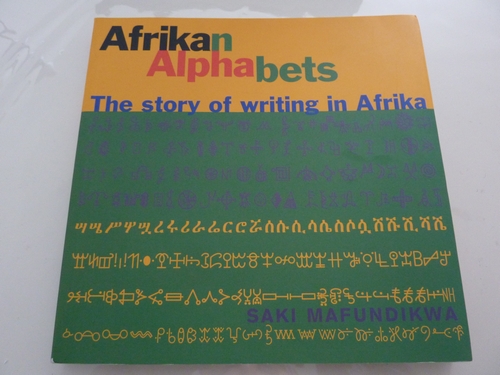
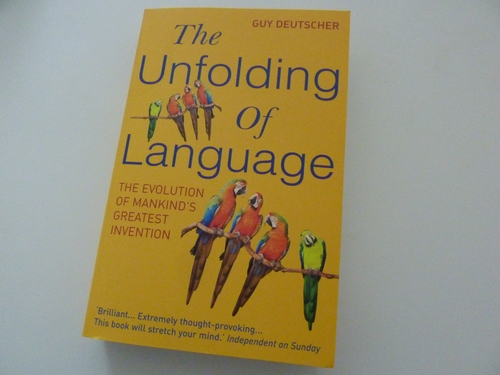
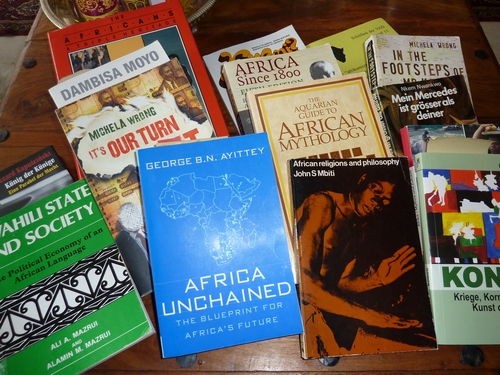
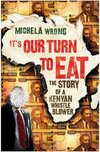
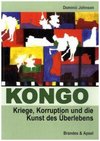
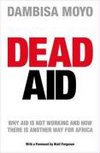
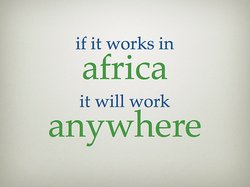 Erik of WhiteAfrican recently argued that
Erik of WhiteAfrican recently argued that 